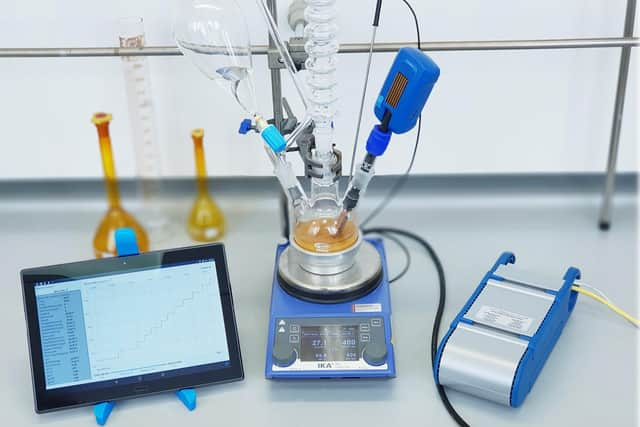Chemistry-focused DeepMatter eyes good results from new academic partnership
The Aim-quoted firm has unveiled the tie-up with the university's Innovation Centre in Digital Molecular Technologies (iDMT), an open innovation research centre also backed by AstraZeneca, Shionogi, and the European Regional Development Fund.
DeepMatter will provide its DigitalGlassware product – a cloud-based platform enabling the recording and sharing of the results of chemistry experiments – to iDMT as part of the development of a fully digital workflow in the discovery and development of new molecules, materials, reactions and processes.
Advertisement
Hide AdAdvertisement
Hide AdThe Glasgow firm said this is part of its efforts to be closely involved with key opinion leaders in the major universities' emerging digital chemistry units and follows on from its collaborations with the universities of Glasgow, Leeds, Sheffield and Nottingham. It also comes after it in June flagged an “increased pipeline of opportunities” after growing revenues in 2020.


The iDMT is a new initiative set up to enable the transformation of chemistry into the fully digital domain, including the increased usage of data science, data standardisation, algorithms for discovery and development, automated analytical chemistry, and robotic equipment.
Furthermore, the facility supports collaborative research projects with small and medium enterprises from across the UK, aiming to develop a technology base to support the emerging digital economy in the third largest manufacturing sector in the UK.
The project will be based in the Yusuf Hamied Department of Chemistry and led by Alexei Lapkin, professor of sustainable reaction engineering.
DeepMatter Group chief executive Mark Warne said: "This is another important step in rolling out our flagship platform DigitalGlassware, with the key opinion leaders in the academic world allowing us to demonstrate publicly its ability to discover new molecules and routes to molecules in a way that would not otherwise be able.
"We are now establishing DigitalGlassware as the go-to platform for capturing and structuring time-course sensor data in the lab, to enable improved insights for better productivity and discovery.
"The establishment of iDMT is an exciting development for our industry... and we are looking forward to working within the digital chemistry space at one of the world's leading universities."
A message from the Editor:
Thank you for reading this article. We're more reliant on your support than ever as the shift in consumer habits brought about by coronavirus impacts our advertisers.
If you haven't already, please consider supporting our trusted, fact-checked journalism by taking out a digital subscription.
Comments
Want to join the conversation? Please or to comment on this article.
